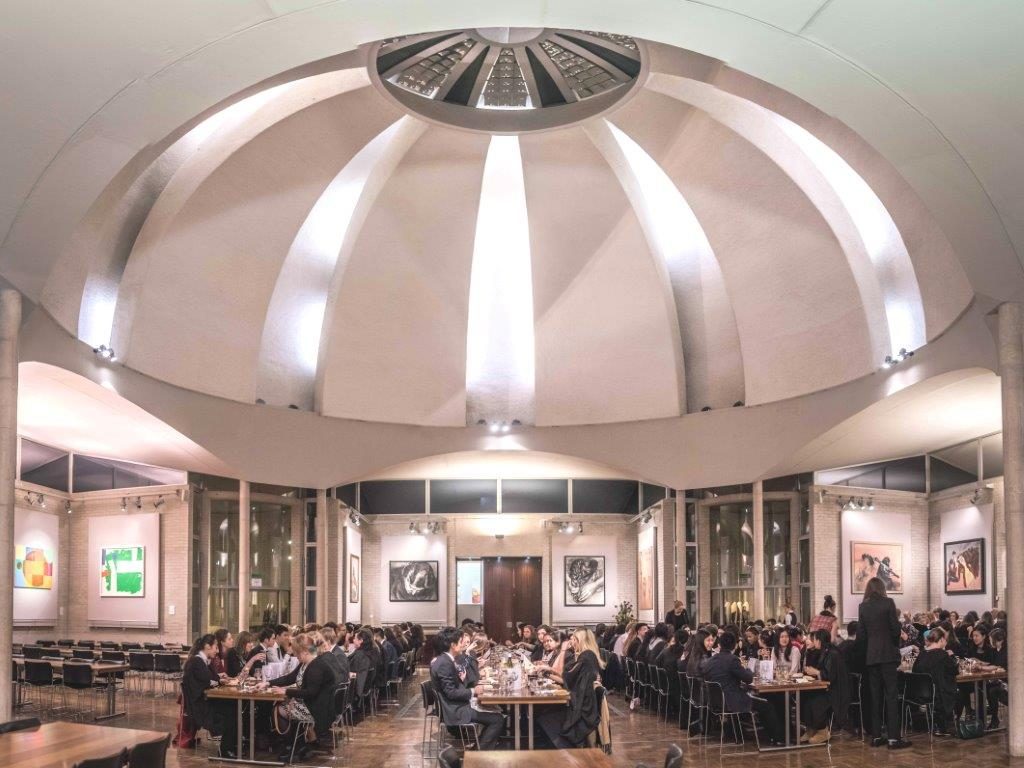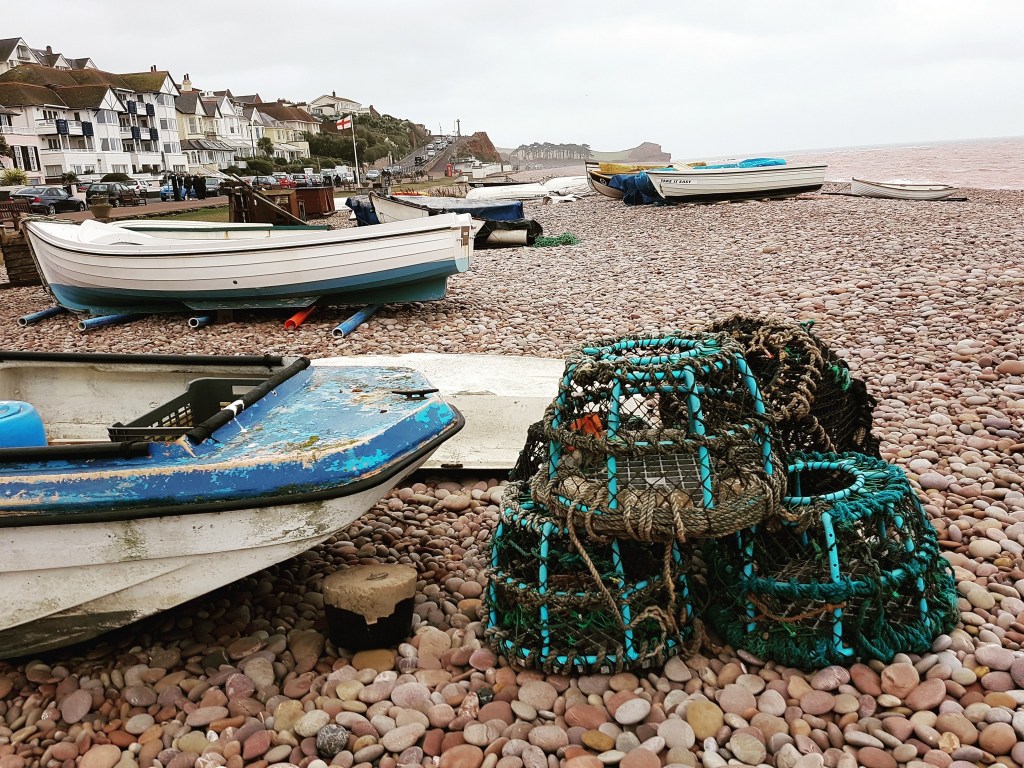The second instalment of ‘Crazy Times in Cambridge’

There was plenty of opportunity for some fun at Cambridge, for students in the late 1960s. Our hours were little troubled by lectures (unless we were scientists), and provided that we read the set books, produced our essays on time, and turned up for supervisions, we could do more or less as we liked. This was not necessarily a good thing. Even then, despite enjoying the freedom, I felt the lack of interactive sessions such as seminars, which played no part in the rather ‘hands-off’ teaching system. I missed the stimulation of classes and exchanges of views that we’d had, ironically, in the sixth form at school. I only understood the process at Cambridge some years later, when someone said: ‘It’s set up for graduates and their research – undergraduates are largely irrelevant.’ I loved my time at Cambridge for all the opportunities it offered, but these were largely extra-curricular. Ironically, it was only after leaving university, that I taught myself how to research properly, a skill which I’ve relied on ever since. No thanks, really, to the tutors.
So what did we do instead? Well, my previous post on Cherry’s Cache involved a dancing gig, as you may read in Crazy Times in Cambridge. There was also radical theatre, the subject of my next post, clubs of all kinds, parties, long discussions into the night, great acting opportunities and, in the sixties, student protests.

I was never a keen protester. However, our visit to the USA in the summer of 1968 had sharpened up my awareness of world affairs, and first-hand experience there had led me to be wary of police who attacked and arrested people for no good reason. And I knew we should take a stand against apartheid and war; it would be shameful not to. The chief focus of the day was the Vietnam War. In Cambridge we students also protested against the Greek Colonels, against Barclay’s Bank investment policy, against Government minister Denis Healey, and closer to home, against the University itself. This was largely due to its antiquated restrictions. Unbelievably, we undergraduates could be sent down for having a member of the opposite sex in our rooms overnight, for instance, and certainly for anything involving drugs. To be fair, it has to be remembered that the universities were in ‘loco parentis’ at this time. The age of majority was still 21, rather than 18, until 1970; most students therefore were technically ‘children’. Even though some rules were very outdated, the university was obliged to act ‘in the place of parents’. College ‘proctors’ patrolled the streets, especially at night, looking out for miscreants and misdemeanours. More of that later.

In protest against the university – just what aspect, I can’t remember – there was a student Sit-In at the Senate House, normally closed to all but those with official business. I wandered in to take a look, just to check on who was there. I stayed all of 20 minutes, then strolled out again. Next day, I was summoned to meet the authorities, who asked what my part in the protest was. Fair enough – the tone was friendly, and willing to listen, but it meant that there had been some element of spying and identifying those present. I explained that I was merely ‘visiting’, and hadn’t been a protestor as such, and the matter was dropped.
The most dramatic protest staged by a single student, a college friend of mine, was to stand up at the start of her finals in English Literature, and declare: ‘Fuck exams!’. She then tore up her exam papers and strode from the room. I still feel rather sorry that she chose that path, after all that time studying. Was it worth it? And after all, our own college, New Hall, was liberal in its views, as a pioneering post-war college for women. It is still exclusively for women today, known now as Murray Edwards College, and has a very fine collection of women’s art

So did I play any part in these protests? Yes – my boyfriend Chris and I joined in with the protest against Denis Healey in March 1968, who was visiting Cambridge at the time, and whose foreign policy displeased us. (I’m afraid I can’t remember how!) According to reports, nearly 1000 students turned out. We charged up Trumpington Street with the mob. ‘As he attempted to leave, they surrounded his car and lay down in front of it. As students threw themselves in front of Healey’s car, the police tossed them into the gutter, injuring many.’ (British Student Activism in the Long Sixties – Caroline Hoefferle) Chris didn’t get as far as any car surrounding posse, as he tripped up while running towards it, and had his hand stamped on by a passing policeman. (Accidentally, to be fair.) The marks on his knuckles didn’t go for years. I stuck to the margins, somewhat lukewarm in my efforts, and not entirely sure what Healey had done.

Then there was the major Vietnam rally in London, the now famous Grosvenor Square Protest in Oct 1968. This was where American Embassy was situated at the time, and the general intention was for a peaceful mass protest against the war in Vietnam. A call went out to all students in the UK, to join in. We climbed on a hired coach leaving from Cambridge early on the Sunday morning, sleepy-headed after a late night (of course), and took our seats yawning to be bussed to the capital. On the way down, somewhere near Cheshunt (no M11 then) a squad of uniformed police pulled the coach over into a car park, where a astonishing array of some further 40 police officers stood waiting for us. We were ordered to disembark, our bags were searched, and little polythene bags full of liquid red paint (which had been handed out on the coach) were confiscated. One girl had a knife with her, which they tried to confiscate too: ‘It’s for my breakfast!’ she said indignantly, producing her sliced bread, butter and marmalade as evidence. She was allowed to keep her harmless piece of cutlery. I don’t think they found anything else, and we were sent on our way again.
Thousands of students arrived in groups from all over the country. My rather blurry memories of the protest include my sense of anxiety when we marched down Oxford Street,and some of the hardliners (not in our own group) began to smash shop windows. And I felt downright fear when mounted police charged the protestors, in Red Lion Square as I recall. Another friend was in tears as she witnessed it, and I backed off as far as I could. This wasn’t what we’d expected. Surprisingly, looking at posts from the news coverage now, the reports are remarkably fair in distinguishing the thousands of peaceful protestors (the intention of the march) from those who turned violent.
My own engagement with protesting ended – it was not for me – but in my final year of university, the infamous Cambridge Garden House Hotel ‘riots’ occurred in Feb 1970. Although I wasn’t there, the severity of the official response shocked me with a profound and lasting effect . The days of more innocent protests, when students were largely indulged, were surely over.
According to the records, The Garden House riot was a civil disturbance at the Garden House Hotel in Cambridge on Friday 13 February 1970….The Greek Tourist Board had organised a “Greek Week” in Cambridge in 1970, with support from the Greek government, which was at that time a highly oppressive regime, a type of junta. Protesters against these Greek ‘Colonels’ over several days culminated with a crowd of several hundred demonstrators picketing a dinner for 120 invited guests at the Garden House Hotel. ‘The protesters picketed the venue – in a narrow cul-de-sac off Mill Lane, beside the River Cam – to discourage diners from entering. The noisy crowd attempted to disrupt speeches inside, with a loudspeaker…playing music by dissident Greek composer Mikis Theodorakis. Protesters invaded the hotel’s garden…banging on the windows of the venue and climbing onto the hotel roof. An attempt to break up the crowd using a fire hose…failed, and violence broke out: the hotel was invaded and damaged…one policeman was seriously injured, others received minor injuries…Around 80 policemen accompanied by police dogs restored order by about 11 pm.’
Six students were arrested on 13 February, and the University proctors provided the police with the names of approximately 60 further students who they had spotted in the crowd. Fifteen students were finally tried at the Hertford Assizes in June and July 1970, on a variety of charges which included ‘riotous assembly, unlawful assembly, assaulting a police constable, and possessing offensive weapons….After a trial of seven days, the jury took nearly four hours to reach its decision. Seven of the defendants were acquitted, but eight students were convicted, including the six arrested in February and two others seen pushing in the crowd. All were aged between 19 and 25. Judge Melford Stevenson controversially gave harsh sentences to those involved…The sentences were criticised as heavy-handed….The incident led to a reform of the powers of the Cambridge University proctors.‘

One of those arrested was Peter Household, an old friend of mine; we had been at kindergarten together, where our mothers were both teachers. He was actually sent to prison for his part in the the protests. He was never, as far as I know, a violent person; our families had stayed in touch over the years, and the word back from his parents was that Peter had been pushed forward, colliding with a policeman. Even if he did deliberately push, it was hardly a violent attack. In hindsight, these sentences are considered to have been incredibly harsh and unwarranted.

At Cambridge, we did indeed get an education, in more ways than one. The usual way of considering an Oxbridge education is that it may set one up for a good job (academic, Civil Service, scientific, what have you) and that it may also create a circle of contacts which will last a lifetime. It was also a place to launch a successful acting or directing career in theatre and television. But for some of us, it was the start of something different:
In his blog, Peter Household comments: My role in the protest was extremely minor, and my presence there almost accidental; but its effect on the rest of my life was total. Everything that happened from then on stems from the night of Friday 13th February 1970. And indeed, he recalls that being imprisoned with two other committed left-wing protestors began his real political education, an ironic consequence of the prison sentence, and something that has shaped his life path since.
My own path was shaped by something rather different at Cambridge– my contact with Buddhist meditation and with groups studying more esoteric traditions. But I was nevertheless a witness to some of the more radical and political initiatives, such as the protests described here.










